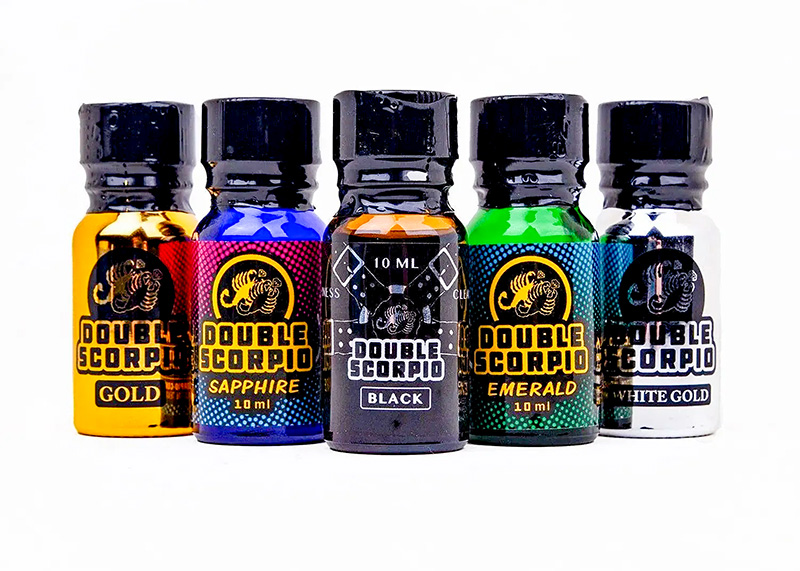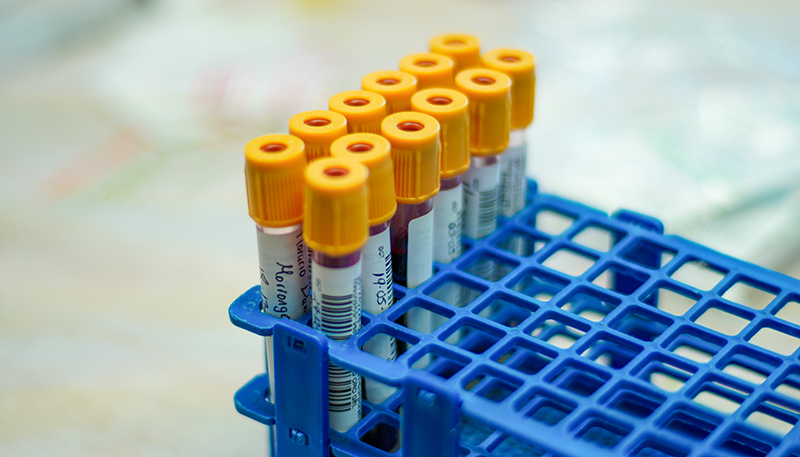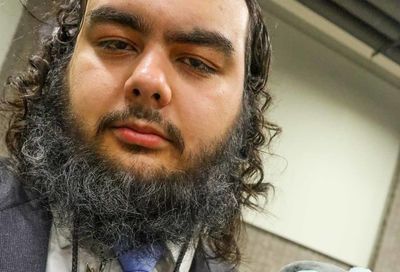Emergency Responders
DC Fights Back demands increased HIV/AIDS funding at downtown rally

Police remove Larry Bryant from Pennsylvania Avenue
(Photo by Todd Franson)
As Larry Bryant and Keith Holder, both HIV-positive, lay on Pennsylvania Avenue in front of D.C.’s city hall, they were surrounded by chaos. Onlookers grew in numbers as the men’s demonstration at the John A. Wilson Building stopped traffic a little after 12:30 p.m. on Friday, March 20.
Officers from the Metropolitan Police Department asked the men to get up from the street. But Bryant and Holder, who is gay, refused. They continued to lay next to signs declaring ”End AIDS” and coffins representing the millions of people who have died from AIDS-related illnesses. No arrests were made.
Bryant and Holder are members of DC Fights Back. The demonstration, part of the group’s involvement with the Campaign to End AIDS (C2EA), was prompted by the Mayor Adrian Fenty’s recent ”Potholepalooza” campaign, which promised a 48-hour response to pothole complaints.
”The fact that we are not potholes means that our needs don’t get filled,” said Matthew Kavanagh while helping carry the coffins and signs onto the street as the demonstration began. ”We refuse to be people who are not taken as seriously as potholes are taken here in the District of Columbia…. We are demanding an urgent need for action.”
DC Fights Back also cited the District of Columbia HIV/AIDS Epidemiology Update 2008, released on March 16 by the D.C. HIV/AIDS Administration. According to the report, 3 percent of District residents are infected with HIV, a 22 percent increase over HAA’s data through 2006. Moreover, the 3 percent accounts for only those who have actually been tested for HIV.
Kavanagh, who is gay, was one of several people who, prior to the traffic-blocking action, spoke on the steps of the Wilson Building.
”There are massive, massive needs not being filled here in the District of Columbia when it comes to AIDS,” he said. ”That’s why people continue to die, because the resources are not there, [and] the leadership is not there.
”We are in serious, serious trouble. And if the mayor can make sure that every single pothole is filled within 48 hours, then why the hell can’t the mayor make sure that everybody has AIDS housing? That everybody has AIDS treatment? And that every child in the District of Columbia has a comprehensive sex-education program? And that every needle is clean?”
DC Fights Back is demanding Fenty develop an emergency plan to combat the HIV/AIDS epidemic in the District within the next six weeks.
”We are here to give the District of Columbia 40 days to fix this problem and to put together a plan that looks like an emergency response to an urgent situation,” he said. ”Inside this building we have seen nothing that looks like an emergency response to the HIV and AIDS epidemic in the District of Columbia.”
Christine Campbell, also a member of DC Fights Back, offered insight on what the group hopes to see from Fenty.
”What would that plan look like? $5.5 million infused into the city to eliminate the HIV/AIDS-housing waiting list,” she told the crowd, which grew to about 50 during the street action. ”What would that plan look like? Making sure every school in our city has a comprehensive sex-education [program]. What would that plan look like? Anti-stigma campaigns where people can go and get treatment without having to face the stigma from the health centers, from the health providers, from the church communities. That’s what an emergency plan will look like.”
The group may not be getting the immediate response they had hoped for from Fenty. On Monday, March 23, Leslie Kershaw, a spokesperson for the Mayor’s Office, released a statement to Metro Weekly that read, ”Reducing the rate of HIV/AIDS infection will be accomplished through a comprehensive, strategic and data-driven plan of action and not by a knee-jerk declaration of a state of emergency. The administration is putting in place renewed sense of urgency among all of the residents of the District in educating themselves and other members of their community about their health status and a reduction in risky behavior.”
If the past is any indication, the mayor’s statement will probably not deter members of DC Fights Back, including Mark Fischer, a gay, HIV-positive man and 30-year resident of D.C. He told those gathered at the rally that obtaining HIV/AIDS-related support services is ”not an easy thing.”
”There are days when you just want to give up, and go away, and lay down and probably die,” he said. ”[But] we cannot have the capital city of the richest nation in the hemisphere with an HIV/AIDS epidemic that’s worse than Haiti, the poorest nation in the hemisphere. This cannot go on.”
Support Metro Weekly’s Journalism
These are challenging times for news organizations. And yet it’s crucial we stay active and provide vital resources and information to both our local readers and the world. So won’t you please take a moment and consider supporting Metro Weekly with a membership? For as little as $5 a month, you can help ensure Metro Weekly magazine and MetroWeekly.com remain free, viable resources as we provide the best, most diverse, culturally-resonant LGBTQ coverage in both the D.C. region and around the world. Memberships come with exclusive perks and discounts, your own personal digital delivery of each week’s magazine (and an archive), access to our Member's Lounge when it launches this fall, and exclusive members-only items like Metro Weekly Membership Mugs and Tote Bags! Check out all our membership levels here and please join us today!
Emergency Responders
DC Fights Back demands increased HIV/AIDS funding at downtown rally
DC Fights Back (DCFB) staged a protest Friday morning, March 20, demanding Mayor Adrian Fenty develop an emergency plan to combat the HIV/AIDS epidemic in the District within the next 40 days.
The protest, which drew about 40 people to the steps of the John A. Wilson Building, D.C.’s city hall, was prompted by a report entitled The District of Columbia HIV/AIDS Epidemiology Update 2008, released on March 16 by the D.C. HIV/AIDS Administration, which notes that 3 percent of District residents are infected with HIV, a 22 percent increase over HAA’s data through 2006. Moreover, the 3 percent accounts for only those who have actually been tested for HIV.
Standing on the steps of the Wilson Building and facing Freedom Plaza at Pennsylvania Avenue and 14th Street NW, Matthew Kavanagh led the a group in a chant: ”D.C. is Dying! Fight Back Now!”
”We are here to give the District of Columbia 40 days to fix this problem and to put together a plan that looks like an emergency response to an urgent situation,” he said. ”Inside this building we have seen nothing that looks like an emergency response to the HIV and AIDS epidemic in the District of Columbia.
”For that reason, we are here today with a pronouncement to deliver to the District of Columbia,” he continued, referring to demands that the mayor double HIV/AIDS funding and improve other preventative efforts.
After speaking, members of DCFB placed two coffins in the middle of Pennsylvania Avenue, blocking traffic. Two DCFB protestors also laid on the street, refusing orders to move from Metropolitan Police officers who, after about 30 minutes removed the two physically. No arrests were made.
Look for expanded coverage of this story in the March 26 issue of Metro Weekly.
Support Metro Weekly’s Journalism
These are challenging times for news organizations. And yet it’s crucial we stay active and provide vital resources and information to both our local readers and the world. So won’t you please take a moment and consider supporting Metro Weekly with a membership? For as little as $5 a month, you can help ensure Metro Weekly magazine and MetroWeekly.com remain free, viable resources as we provide the best, most diverse, culturally-resonant LGBTQ coverage in both the D.C. region and around the world. Memberships come with exclusive perks and discounts, your own personal digital delivery of each week’s magazine (and an archive), access to our Member's Lounge when it launches this fall, and exclusive members-only items like Metro Weekly Membership Mugs and Tote Bags! Check out all our membership levels here and please join us today!























